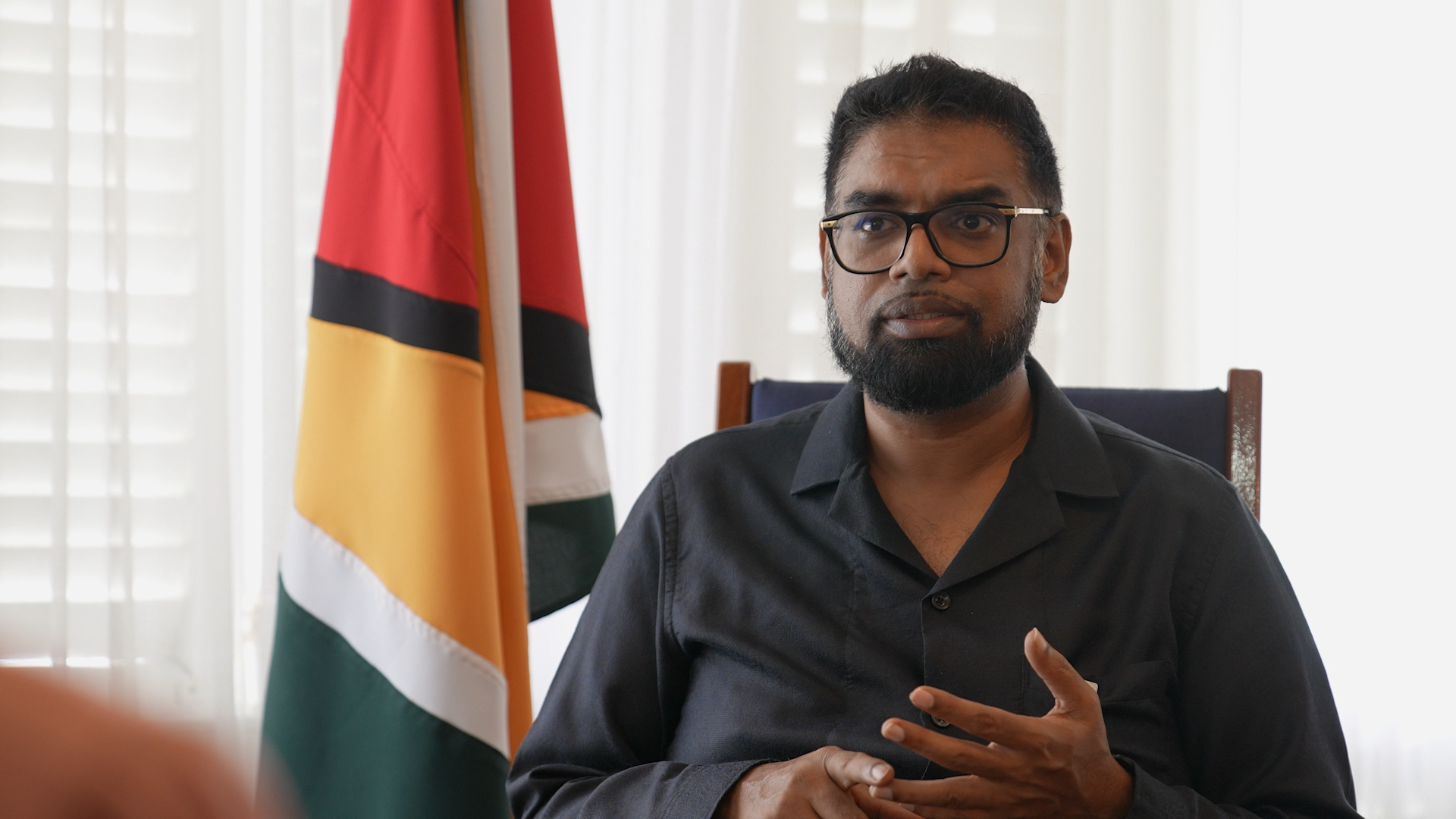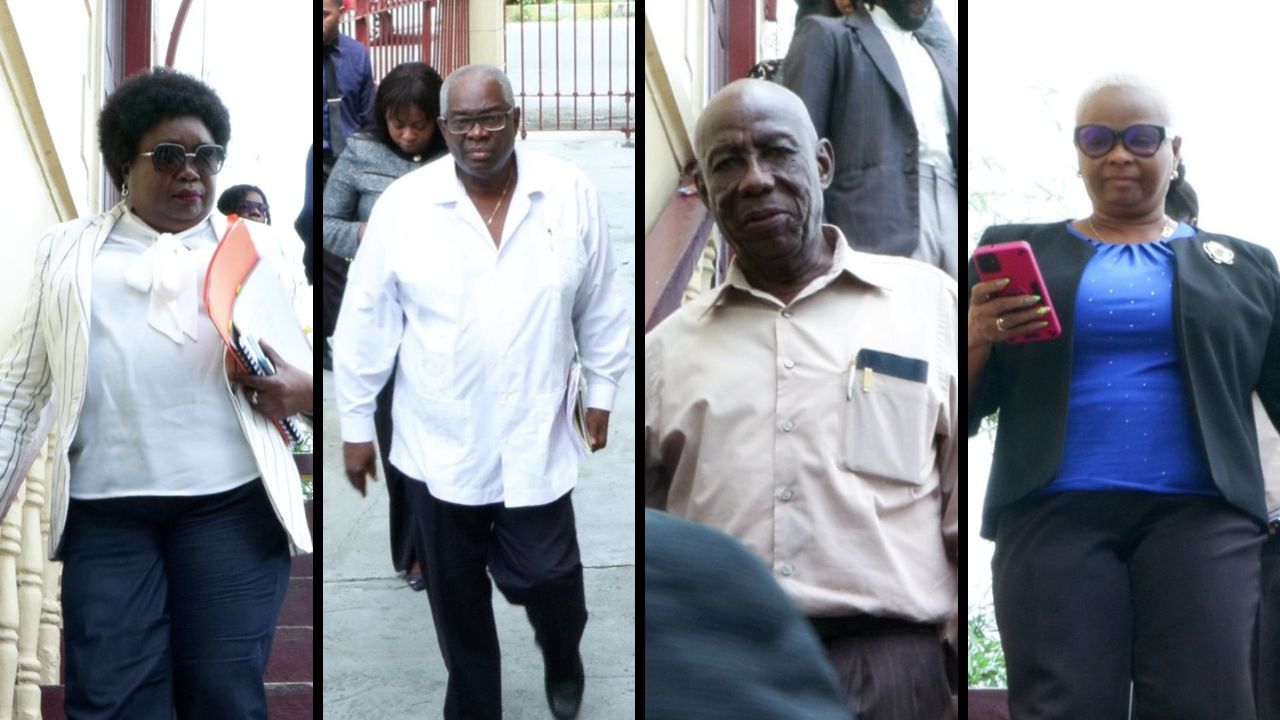
President Dr Mohamed Irfaan Ali has strongly criticised the most recent data published by Transparency International (TI) in its perception index of corruption in Guyana.
It has ranked Guyana 92 out of 180 countries, with a score of 39 out of 100 on its Corruption Perceptions Index.
In a live broadcast on Thursday, the president disputed the data presented in the report as lacking empirical evidence and questioned its sources.
The president said that the report was compiled through jaded lenses, based on the jaundiced narrative painted by opposition figures.
He further questioned how the report could describe the country’s current transparency and law enforcement as “very low” when countless unscrupulous acts characterised the previous APNU+AFC Administration’s time in office.
“Imagine in 2020 you had a government that was illegally occupying office, you had a government that disregarded a no-confidence motion and ruling of the court, you had a government that spent more than $600 billion without parliamentary oversight,” he reminded.
The president further noted incredulously, “They got a higher ranking for that, the worst period in the history of our country. [Now], more persons are ticketed. More persons are prosecuted by CANU. More persons came under disciplinary measures in all government agencies, but we score less. What nonsense is this? What mischief and misinformation is this?”
He pointed out that the Corruption Perceptions Index ranks the 108 countries based on perception, and not empirical data.
The president noted that if one were to focus on empirical data, one would observe that in terms of project permits, the coalition government had an 89 per cent implementation rate, while the PPP/C Government has a 97 per cent implementation rate.
In exposing the political motive behind the report, President Ali scrutinised its list of contributors, pinpointing their linkages to key opposition figures and their consistently contrarian views on government programmes and initiatives.
The president presented this damning evidence that demonstrates that the report’s content is not rooted in objectivity.
“Let us look at the President, Fred Collins. He was one of the persons who filed a legal action against the Environmental Protection Agency and the lawsuit alleged that the EPA had failed to enforce the liability clauses stipulated in permits issued to Esso Exploration and Production Guyana limited, a subsidiary of Exxon Mobil. The question is, what is his motive? Who are the persons he brought on board in the interviews to fuel his perception and motive?” the president further quizzed.
He revealed that another contributor, Dr Rishi Thakur, is a former member of the Alliance for Change (AFC), who joined the A Partnership for National Unity (APNU) in 2011.
“These are the persons who the perception indicators are relying on,” he said.
He marvelled at how a government that attempted to conceal the receipt of a US$18 million signing bonus from Stabroek Block operator ExxonMobil can receive a higher rating on this index.
The head of state continued, “They got a high score for the US$18 million signing bonus from the people. That is what perception does? Perception represents a motive and a view designed for a particular purpose. I’m giving you the facts.”
The president underscored that Guyanese are entitled to their views and that the PPP/C administration will always protect the rights of those who criticise because this encompasses good governance.
However, he stressed that it is important to contextualise the content of the TI report and the key players driving its corruption perception index.
He pointed to actual objective reports, such as the Caribbean Financial Action Task Force (CFTAF) which recently awarded Guyana the prestigious Best Regional AML/CFT Case Award (BREMOLT). This award highlighted the country’s commitment to tackling corruption and financial impropriety by public officials, regardless of status, to ensure proper management of its financial systems and resources for its citizens.
Notably, Guyana also received the Champion of Transparency Award by the UN Framework Convention on Climate Change (UNFCCC) in 2024, being the first developing country in the world and the second country globally, to meet its required submission for climate transparency reporting.
“This is a UN body based on facts, not perception,” president Ali noted.
The International Monetary Fund (IMF), in its 2023 Article IV Consultation report also commended Guyana on its progress to strengthen the management of oil wealth and fiscal transparency.
On another note, the Caribbean Development Dynamics 2025 by the Inter-American Development Bank (IDB) report highlighted Guyana’s significant progress in strengthening democratic processes through transparency.
Comparing the two reports, one based on empirical data and the other based on “perception”, the president said, “The report notes that Guyana meets the necessary criteria regarding fiscal transparency, access to information, disclosure of public official assets and citizens engagement. This is what they said. The [Transparency International report] said that we attack dissenting voice and activists and journalism. But this is what the [IDB] report says.”
According to the president, there have been vast improvements in the government’s anti-corruption efforts, but this fact does not align with the desired narrative of these opposition figures and their agenda to sway public opinion ahead of the 2025 General and Regional Elections.
“We are not hiding from assessment. We are subjecting ourselves to every single international assessment – every assessment that is based on facts. Furthermore, to ensure full transparency and accountability, notification of receipts of petroleum revenue has been published in the official gazette since April 2022. These are things that we implemented. How can the score go down with these things?” he questioned (Republished from the Department of Public Information)








